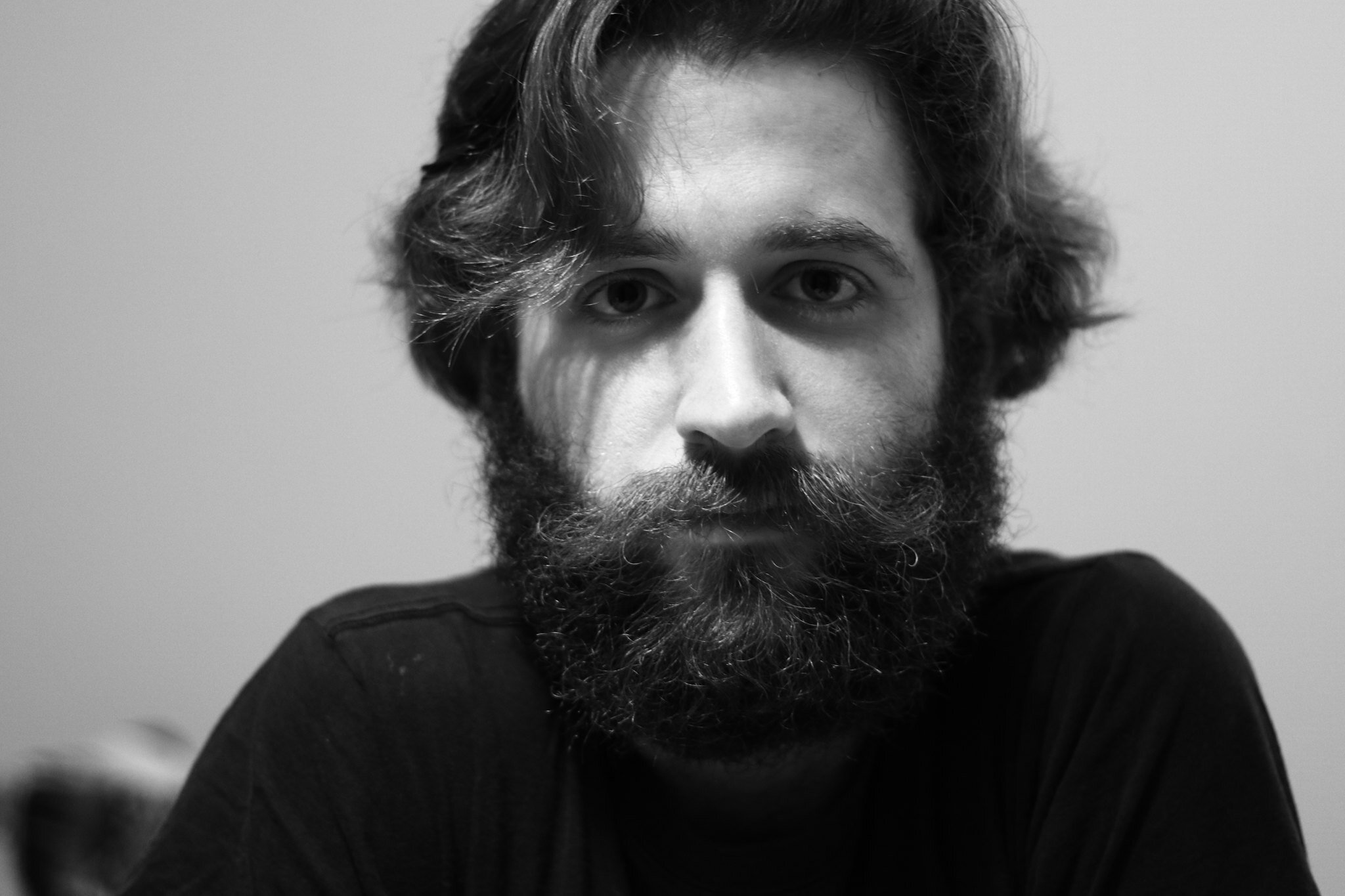Transitioning and Surviving into Clinical Years: Tips and Tricks for Medical Students.
Introduction
Today's blog feels more like an actual blog rather than the other more serious and referenced articles. So instead, I talk about how I managed my first clinical year as a student and, essentially, the routine I used to tackle the second half of my undergraduate degree. The undergraduate degree is a six-year MBBS program where the first three years are lecture-based, and the last part is clinically focussed.
After three years being in the lecture theatre with a total of four placements (general practice x 2, emergency medicine and rural) which equates to about 6-8 weeks, it is time to enter the clinical world for the last three years. Transitioning from preclinical to clinical settings can be daunting and scary, and for many students, this is the first time they leave the lecture/classroom settings and are left on their own. Of course, being left on your own is not accurate; there is always support to some extent, but this is the first time students have a lot more freedom, responsibilities and opportunities.
The program that I was in, from what I have been told from others, is that it is quite unique and different to other medical schools. Whether for the better or worst, I cannot tell, but as a student, from whichever medical school you are from, it is mostly on what you do with the opportunities you are given.
At the end of the day, the experience varies significantly and is dependent on personality, education and upbringing; the question is, how resilient and adaptable are you?
Transitioning into clinical years
My experience
My 4th-year experience or first year in the clinical world was mixed, ranging from frustration to satisfaction. My experience varies vastly from my cohorts' peers, and I am sure it differs even more from my other colleagues in other medical schools. However, I feel the tips and tricks can be used for anybody that goes into their clinical-stage during medical school. Before talking about tips and tricks, I have to explain how my first clinical year was structured. It was a bit intense but doable; essentially, the crux of my first clinical year was to:
Learn pathophysiology throughout the year, where you learn the most critical and common (and some uncommon/rare) diseases and abnormalities in different systems,
And being exposed to placements in different settings.
Pathophysiology goes on throughout the year, where each system is touched on. Whilst learning pathophysiology, which can be online or present at the lecture theatre, you are paired up with a partner (which can change). Depending on the rotation, you can either be at the private, rural or public hospital. With an allocated ward and times, you are free to speak and examine patients when patients consent. At first, it can be overwhelming being on the ward, but it becomes very familiar after some time. I always thought we were "lost little lambs" as we didn't have a place with any teams (year five or clinical year two is when you are attached to a team), which have advantages and disadvantages.
The advantages are:
You can learn at your own pace and practice your history taking skills and physical examinations, which is fundamental for the end-of-year examination, such as the famous Objective Structured Clinical Exam (OSCE). At the end of the year, one of our tactics was to practice on a patient like an OSCE station, which must be in eight minutes. I thought that was beneficial and an excellent opportunity to get better.
Spending a lot of time with lovely patients who can chat about how and why they are at the hospital. I have had almost positive experiences with all patients I have chatted with. Sometimes these chats can be long and intense, but I learned that there is much more to a patient. It may sound obvious, but there is actually a lot going on in their lives. Connecting with patients is worth it.
The disadvantages are:
Being unsupervised means you may completely miss vital signs and symptoms whilst talking and examining a patient. Sometimes I had no idea what I was looking for in history taking and during my examinations, especially at the beginning of the year, until an intern/resident/consultant showed me (by luck). This was very frustrating at times but got better throughout the year as you learned more in-depth on how to ask the right focused questions and look for signs in an examination. I have to thank the Talley & O'Connor textbook for that.
Having a partner that does not align with your values or work ethics. This can be an unprofessional partner to a too intense partner who wants to do everything all the time. I was allocated with great work partners whom I cannot complain about, and I am very thankful.
I have also omitted many activities that I did in my first clinical year. At least, in my opinion, the emphasis was the pathophysiology and having placements (private, public and rural). Still, the year is integrated with much different content (each with advantages/disadvantages and success/failings to which I cannot discuss as this is about surviving the transition into clinical years as a student and not giving reviews).
These are:
Having guest lecturers, doctors and healthcare staff in their relevant field of studies.
A weekly clinical pathology case, which can be long and tedious but rewarding.
Family studies course and weekly radiology integrated lectures.
Clinical skills such as learning in-depth the clinical examinations.
Clinical reasoning lectures, which teach on differentials and top diagnosis.
Clinical investigations which guide on what to order and understand the results.
Assessment and hurdles such as written and orals + end of year examinations.
As you can see, the 4th year or first year in the clinical setting can be intense and daunting, but you got to eat that elephant in small bites, which has to be done every day.
Tips and tricks
The transition feels like you are already behind and you may feel demotivated before you even start. I remember feeling overwhelmed, and I didn't even begin the welcome lectures! This is entirely normal and a classic example of overthinking, but I can say that it was not that bad and was actually quite a fun year.
Remember, it depends on your resiliency and adaptability. Use all your skills in coping and managing yourself, especially when you enter the clinical phase and always keep in mind that clinical learning is self-directed. It is a time where there is a lot more responsibility on your shoulders.
Overall for my first clinical year, I had a good experience with a few bumps here and there. I enjoyed myself, and it was more interesting than the first three years. Below are some of the tips and tricks that I applied and recommend.
Attend lectures, zoom meetings & practicals
My first tip is one of the most important, at least for me. Many students these days love to use the computer to be present in lectures, but I would rather be physically there. Why? I cycle to university, get my daily dose of exercise, breathe a bit of fresh air, and there is a change in the scenery. Also, there is social contact; seeing your friends always feels good as you can complain and debrief about things. I learn better when physically present, as I feel more concentrated and present. Attending to everything helps you learn indirectly as you may not fully remember everything, but when you go back to study, you have a vague idea of what is going on. In other words, it is not the first time seeing the content, which helps a heap. Many of my friends don't do that for many reasons (part-time jobs, other activities, inconvenience, distance, and so on), which is perfectly fine. Try both and see what works for you. I would discourage learning independently, but I understand that some students are not happy with how the subjects are taught and feel that they learn better that way. The good thing is that there are options, and it's not mandatory to be present (depending on where you are at).
Partners & friends
Sometimes you are with a partner you may not like, which can worsen the experience, but that's life. In the world, you will be around with people you may not like; use this as an opportunity to be professional and try to make it work. Test your communication and confrontation skills; call people out if you have to. It's unpleasant, but it builds character. If it cannot work, try to arrange with the school to swap partners if you have to, but do give it a go. If you can choose a partner, pick one aligned with your values and work ethics, this makes all the difference to have a partner who wants to work. I liked my work partners and friends as I see them with a source of knowledge. I try to incorporate how they ask questions or examine as we all have different styles and ways of doing things. Bright colleagues surround you, and you can always learn from someone!
Placements and patients
Placements are where the money is at. Make the best use of the clinical setting at your own pace. We had an excellent opportunity to learn at our own pace, albeit with some disadvantages. Go to the placements and practice what you have learned at history taking and clinical examinations. Learn about the patient and understand their background; they are human beings who matter a lot. As William Osler (July 12, 1849 - December 29, 1919) say,
He who studies medicine without books sails an uncharted sea, but he who studies medicine without patients does not go to sea at all.
Patients have a wealth amount of information and are the ultimate learning resources. Look at their presentations as there are many subtle differences. See patients that have unique and complex cases with abnormal signs. Keep practising your examinations and history taking skills until it becomes muscle memory, and you will look very slick in the end-of-year examinations. You can tell which colleagues have been skipping placement compared to other colleagues who practice. When you speak to patients, make sure to wash your hands, introduce yourself clearly and gain consent. Remember to always be in pairs and never be alone when talking to patients. Always respect their wishes and views on things and try to understand their point of view. Be professional and polite.
Understand how a hospital runs, where the notes are and how they are written, the roles of the different healthcare professionals, what happens to patients from when they enter until they leave, and so on. Be proactive and use your time effectively! Remember that doctors will not spoon-feed you when they have a whole ward of patients and pending jobs. Have clear goals for yourself, take breaks, and don't try to learn everything in the first week, as that would be pretty silly. Always display professionalism such as being punctual, dressing appropriately, attending, keeping confidentiality and finally enjoying yourself.
Rural placement
Rural placement is where I shined and was by far the most fun and enjoyable aspect of my year. By the end of my placement, I felt I was doing what a 6th-year medical student was performing. I was given a room at the GP's surgery and took patient history, relevant examination, thought out of my management and investigations, did preventing medicine such as vaccinations and screening, et cetera. I was very blessed with the experience and felt competent and capable at the end of my placement. My rural placement worked so well because I took all the opportunities handed to me. I stayed much later at the hospital, asked many questions, volunteered to do things, and practised my knowledge and skills. I highly recommend it!
I took a step further and chose a placement where I was the only student present (I went to Hughenden in Queensland, Australia). There are many advantages to doing that, with some minor disadvantages.
Advantages are:
You can have all the healthcare staff for yourself, hence a higher teacher to student ratio.
There is no competition, so you get to do things at your own pace and have all the opportunities to yourself. It's pretty awesome.
You get to be more involved and be present as they always need an extra pair of hands.
Disadvantages are:
I struggled in knowing if I was on track because I had nobody to compare my progression.
Some students may feel homesick or lonely.
Also, on rural get involved with everything, there wasn't a single weekend where I didn't do something. I had helicopter rides, did an eight-kilometre run through a canyon, went with pediatric consultants and registrars to a nearby town, had fantastic barbecues, school fête, show grounds, horse races, museums, cycling, kayaking and so on.
Starting early
Another crucial tip is that in the last two terms, or let's say 8-10 weeks before the first examinations, pair up and start to go through all the OSCE and clinical examinations together. Because you are starting early, it can be chilled and laid-back sessions, where ideas can be passed around with a whiteboard. My good friend and I started early, and of course, it was always a bit awkward at first, but then it became amusing and fun. We simulated the OSCE’s stressful environment early on, such as with the buzzer, standing outside reading the case, having eight minutes, having the lanyards with clinical clothes, having the stethoscope swigging around, and throwing random challenging cases. That way, it psychologically prepares us for the exam day. On the day, after doing so many cases and practising in that manner, it didn't affect me and I felt comfortable. We used AMBOSS as well as Geeky Medics, along with Talley & O'Connor's Clinical Examination.
Tutoring
Weirdly seen as a sign of weakness in medicine, tutoring was highly beneficial for me. My friend and I took about 3-4 one hour lessons from a highly competent 6th-year student. She gave us keynotes, tips and tricks to approach OSCE(s) and exams, went through high yield questions that were bound to come up in exams and talked to us about her experience. Tutoring is excellent in directing where to learn, perform and think. It's also beneficial in having a tutor/mentor to let you know if you are progressing in the right direction. I highly recommend it.
Medical association
Usually run by students for students, the medical associations are significant (depending on which university you are at). They provide opportunities such as mock OSCE(s) and other activities. It is always daunting and sometimes a bit embarrassing, but it is for you at the end of the day. I did the available practice OSCE(s), and I did average in 2 cases and poorly in the third, which is fine as it is practice. It can be a bit demoralizing, but the older students are doing it for our benefit; hence listen carefully at the debrief to learn as much as you can on some of the pointers. The OSCE trials motivated me to learn more and identify gaps in my knowledge. So get in touch with your student medical association and do the provided activities as most of the time it is free.
Diary/clinical notes
I particularly did not do well in this section, and I shall be better next time as my weekly notes could have been more detailed, but I lacked motivation. It can take some time, so be efficient. I recommend writing in your diary or clinical notes after seeing a patient (all with their consent and absolute confidentiality) whilst your memory is fresh. You quickly forget many details after 5 minutes. Make minor remarks such as how was the patient, what's happening, diagnosis and differentials, investigations and management. Make a note of missing knowledge gaps you may have for that particular case. For example, if you are not sure about medications for seizures, make a brief note saying briefly read about first-line medications for seizures. Keep it simple and doable. I recommend updating it on your word document daily; doing it weekly is not particularly fun.
Disease summary
Pathophysiology is a full-on and heavy subject to learn in medical school, and with so much going on during the clinical years, it is essential to create a streamlined and efficient way to describe diseases/conditions. By the end of the year, you may have a long list of diseases to learn and remember: hence, I recommend keeping it brief, succinct and easy to explain. There are numerous ways to create a disease summary. I recommend keeping the diseases in systems making it a lot easier to remember and use plenty of creativity. I had many creative colleagues, each with different learning styles, making interesting disease summaries such as the example below. If possible, use mnemonics (such as the 6 Fs of cholesterol gallstones) and lots of drawings to keep it fun and easy to remember. Whatever your style is, it needs to make sense to you for your understanding.
Remember to use KISS: Keep It Simple, Stupid or Keep It Super Simple.
For a much detailed blog, check out my disease summaries at Disease Summaries for Medical Students: A Simple Structure and Approach.
Recommended textbooks
For the first three years in medicine, I never bought textbooks because I knew from my past degree experience that it was a colossal waste of money and space. Besides, I noticed there always seems to have an online version floating about (do as you will with that information). When I started my 4th year, I bought four books, which was a first. These are:
Talley & O'Connor's Clinical Examination. An excellent textbook on clinical examination with signs and symptoms. They also teach the relevant history taking for each system. This was a pleasure and beneficial; I cannot recommend it more.
Oxford Handbook of Clinical Medicine. I haven't used it as much as I would have liked, but it is somewhat beneficial. I shall give it another go.
Kurzgesagt Gratitude Journal - not medicine-related, but it is essential to feel and understand gratitude. I recommend it for a good mental health day.
The Barefoot Investor - not medicine-related, but knowing that doctors, dentists, lawyers, et cetera are terrible at making financial decisions is astounding (I also bought Rich Dad Poor Dad).
A textbook I wish I had bought for pathophysiology was Robbins Basic Pathology, I still did fine in pathophysiology, but I recognize that Robbins is an invaluable source of information.
Use previous student's notes
It is a controversial topic and probably looked down upon by the very studious students who make everything themselves. I am not ashamed and will own up to it that I started the year with every notes I needed for the year, which an older student provided. The difference is what you do with the notes. I used it as a guide and saved myself much time. However, I would not recommend solely relying on older students' notes simply because you are not learning as well as you should, and sometimes the notes are outdated. Making your notes can be beneficial but highly time-consuming; I had better things to do with my life than making notes during the weekend. Remember: work smarter not harder.
Thus, get the required notes and use them accordingly, such as adding more detailed notes in the missing gaps. Please pass it on to the next person at the end of the year as medicine is a collaborative and inter-disciplinary profession. Thus, collaborate!
Here is an excellent structure to make notes on a particular condition:
Definition: in a short sentence, describe the condition.
Epidemiology: who gets it, what causes it and how often.
Presentation: signs and symptoms.
Causes: genetics, environment, immune system, lifestyle and so on.
Pathophysiology: a succinct and compelling description that makes sense and is easily explained.
Differentials: list at least three.
Investigations: what is needed to rule in or rule out. Includes bedside, bloods and imaging.
Scoring system: if available.
Management: may include (be brief); emergency intervention, non-pharmacology, pharmacology, conservative, lifestyle changes, follow-ups, referral with who and medical/surgical intervention.
Complications: immediate, long term and life-threatening.
past papers
At the end of the day, you need to pass a set amount of examinations set by the university, which is regulated by the Australian Medical Council (AMC). The AMC's purpose is to ensure that standards of education, training and assessment of the medical profession promote and protect the health of the Australian community.
I have been doing this in my previous degree with a high success rate. Get the past papers; it is that simple. The past papers help you identify the missing gaps in knowledge, demonstrate the favourite and most likely topics, show the level of difficulty, get you to practice your timing, and boosts your confidence in your understanding. It is very beneficial. Unfortunately, some universities do not let you have any past papers, but there is a way when there is will. Students get together and rewrite the whole exam, which is probably against some universities and medical schools code of conduct (depending where you are); if this isn't a union or collaboration, then I don't know what is.
Remember, the medical school has to pass a number of students. Hence it cannot be extremely hard or too easy. To do so, they have to ask general basic questions across the most critical topics. These are your high yield and apparent topics. They want to create a safe product, a safe doctor ready to be an intern. Thus, know your basics well not to harm your patient. The very nitty-gritty and hard obscure questions (which can be looked up in the real world) are purposefully asked to separate the credits, distinctions and high distinctions. The students who get these deserve it in their own rights from learning tediously.
Sometimes it's not worth it
Don't burn out before you get started. Sometimes it's just not your day, and sometimes you should put yourself first and drop medicine to fourth or fifth on your list. Forget about it and do what makes you happy. If you are not mentally, spiritually or physically in the right place, you can't study or go on. Remember it's uni, it is supposed to be a lot of fun too! However, talk to a friend and see your general practitioner if you are not feeling too good. They help a heap and I highly recommend it.
Look after yourself
Sleep, exercise, drink water, go out and socialise, have a part-time job and get involved in societies. The busier you are, the more free time you have. It's peculiar because you are way more organised and appreciate your free time. It also helps me a lot from avoiding being sleepy in the afternoon. So try to be balanced and don't underestimate sleep and exercise; it's good for you anyway. Every morning I cycled 6 km, about 15 minutes, to either the private or public hospital. My favourite was cycling to the private hospital along the river on a chilly morning. It was pleasant, which put me straight into the right mindset and in a happy mood.
My final say
Good luck, and I wish you the best! I have complete confidence that you will be more than fine if you follow my tips and some of these tricks. The clinical years are exciting, new and fun as it is finally a time where you feel you are doing something productive and that you belong. Remember, it is what you put in. You put in the work, show eagerness, ask questions, and all of a sudden, opportunities present themselves.
Published 15th August 2021. Last reviewed 25th January 2022.
Reference
Aqua Asif. Medical Students – Transitioning Tips into Clinical Years. Learn Surgery Online website. https://www.learnsurgeryonline.com/medical-students-transitioning-tips-into-clinical-years/. Published May 16, 2020. Accessed April 29, 2021.
Australian Medical Council authors. Accredited medical schools. Australian Medical Council website. https://www.amc.org.au/accreditation-and-recognition/assessment-accreditation-primary-medical-programs/accredited-medical-schools/. Updated 2020. Accessed April 29, 2021.




























